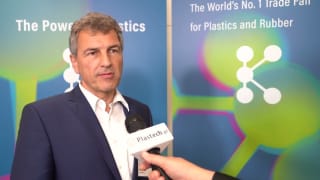 The material recycling and energy recovery of post-consumer plastics waste varies significantly by country. In some countries like Switzerland, Germany, Sweden and Denmark there is very little landfill – these countries are very close to completing their diversion-from-landfill strategy.
The material recycling and energy recovery of post-consumer plastics waste varies significantly by country. In some countries like Switzerland, Germany, Sweden and Denmark there is very little landfill – these countries are very close to completing their diversion-from-landfill strategy.A recent study by the Swiss consultancy Prognos showed that 2 7% of the EU Kyoto target for greenhouse gas (GHG) emissions could be saved if all waste currently going to landfill was to be diverted flexibly to recycling and energy recovery.
The best results were achieved without specific targets but with full flexibility to explore recycling and energy recovery where it best served the specific waste stream. In addition to saving GHG emissions, diversion from landfill contributes to increased resource efficiency and energy security while reducing littering.
One important observation from figure is that countries with high recovery rates do well on both recycling and energy recovery. We can therefore confidently state that a strategy including energy recovery is not contradictory to achieving good recycling results. It simply illustrates that a complete resource management strategy needs to address both, as no country will be able to recycle all post-consumer waste.

The progress of the diversion from landfill is slow on average with recycling (mechanical+ feedstock) across EU27+NO/CH increasing from 1 9.5% in 2 006 to 2 0.4% in 2007 while energy recovery remained stable at 2 9.2%.
Strong efforts will be required in many Member States to capture the full potential offered by a diversion from landfill strategy, namely GHG emission savings, enhanced resource efficiency and energy security and the avoiding of landfill penalties.



